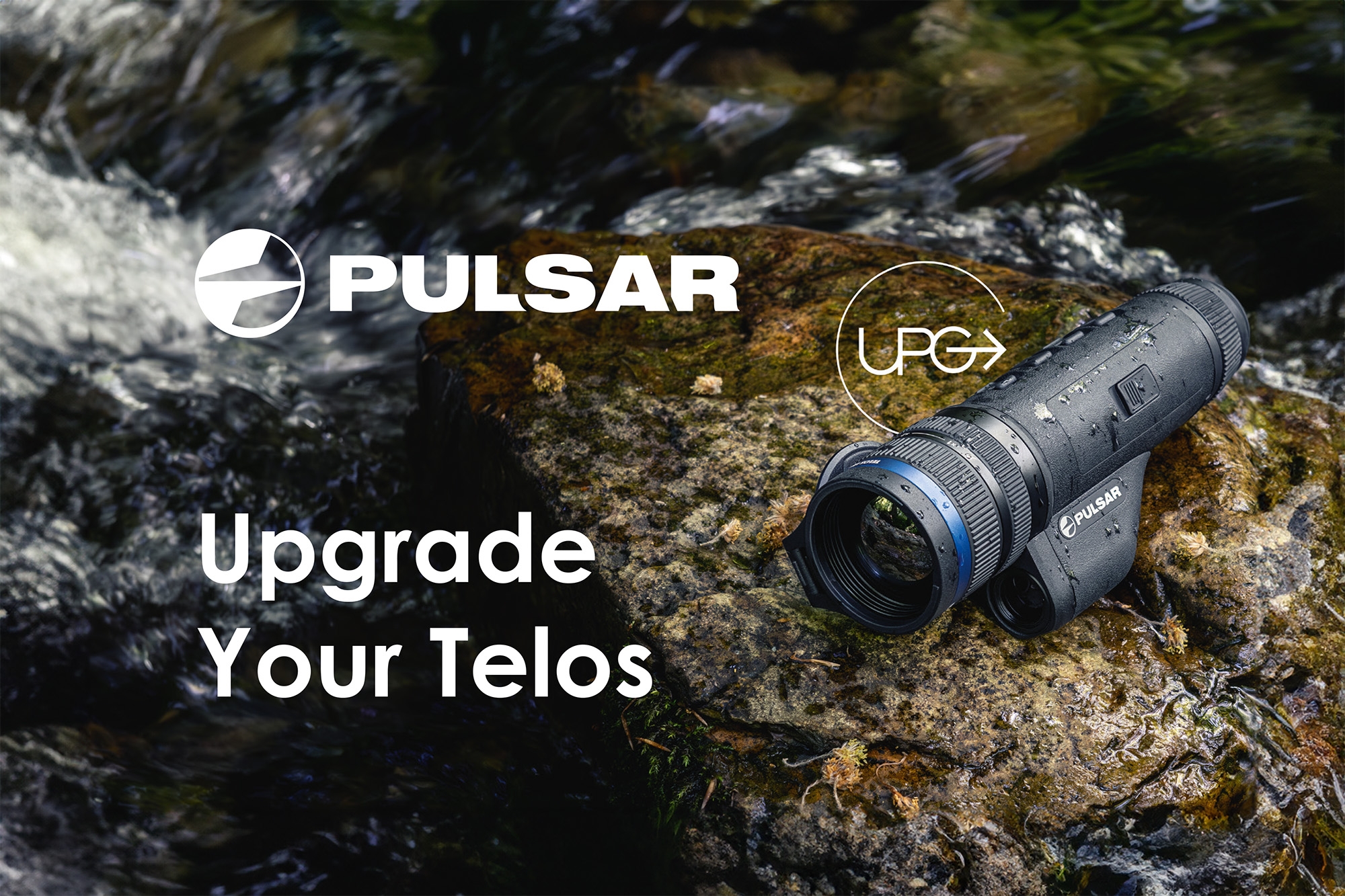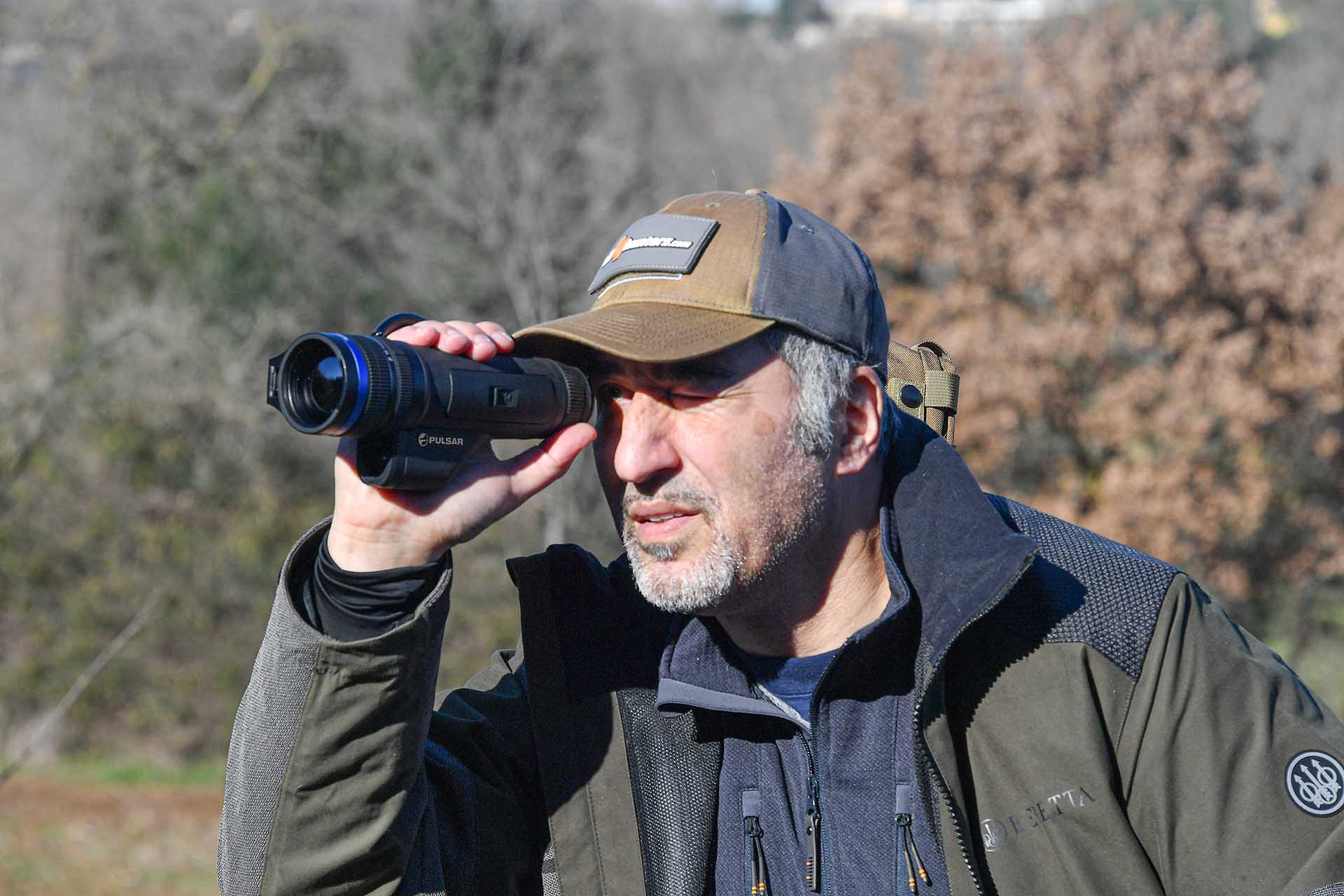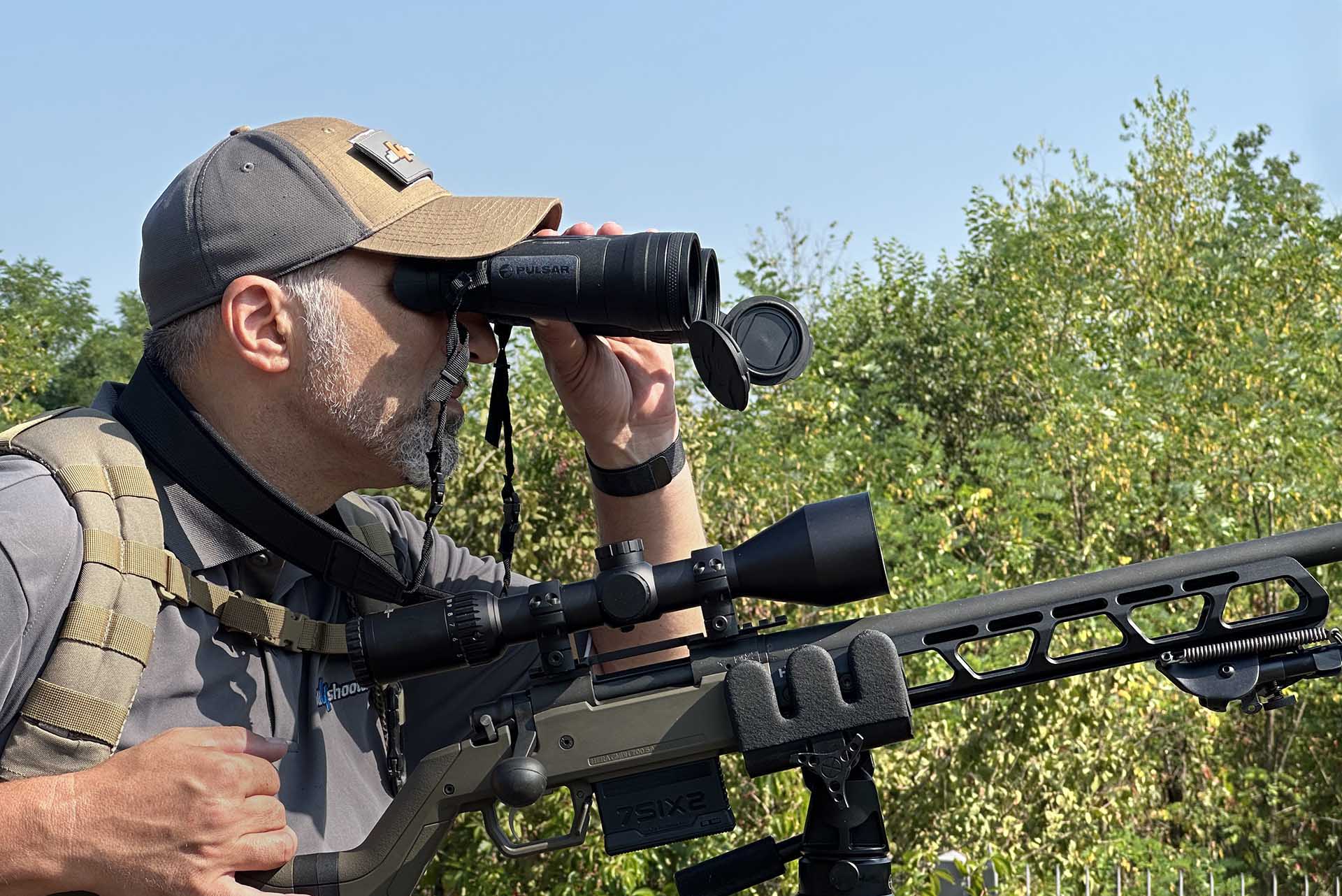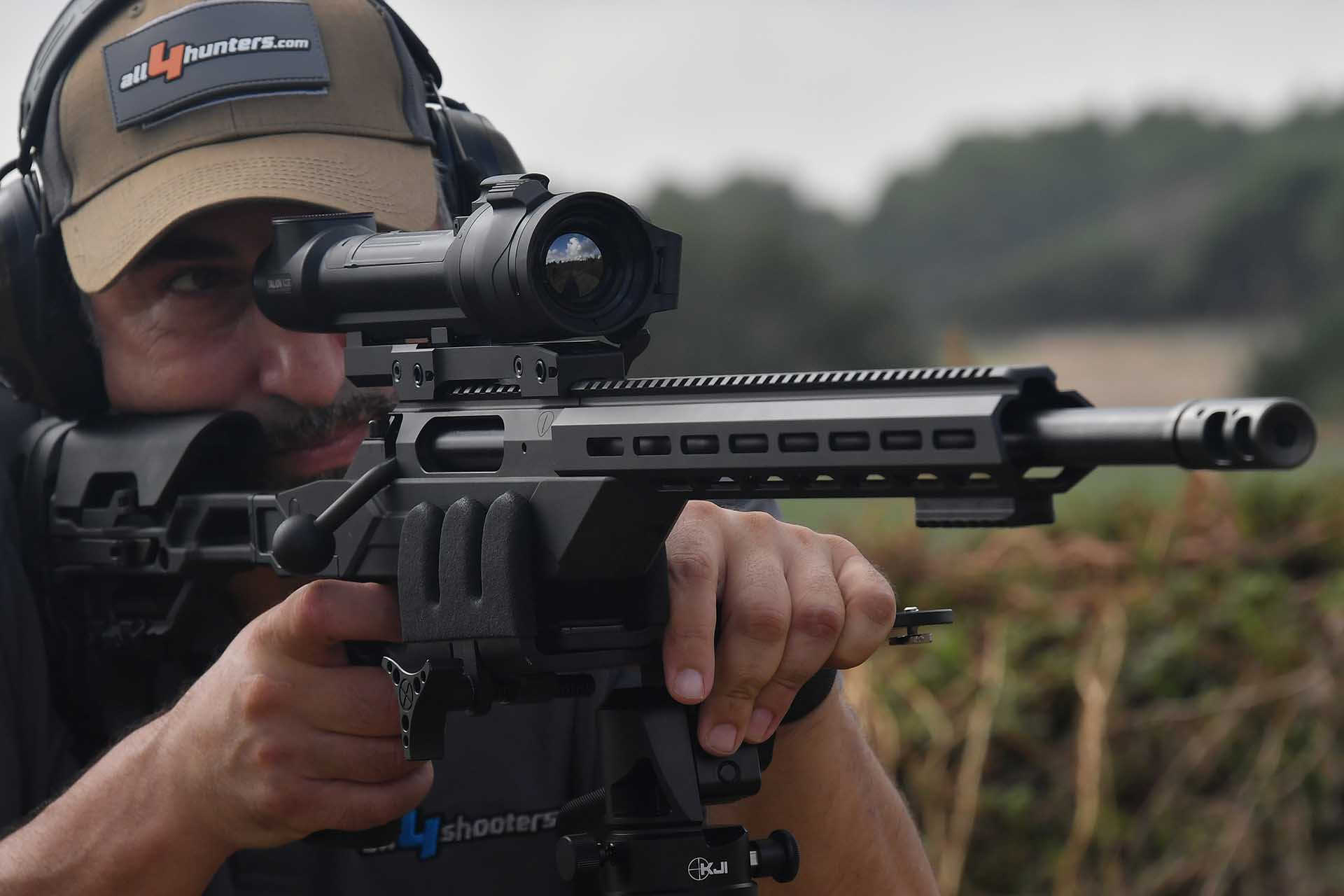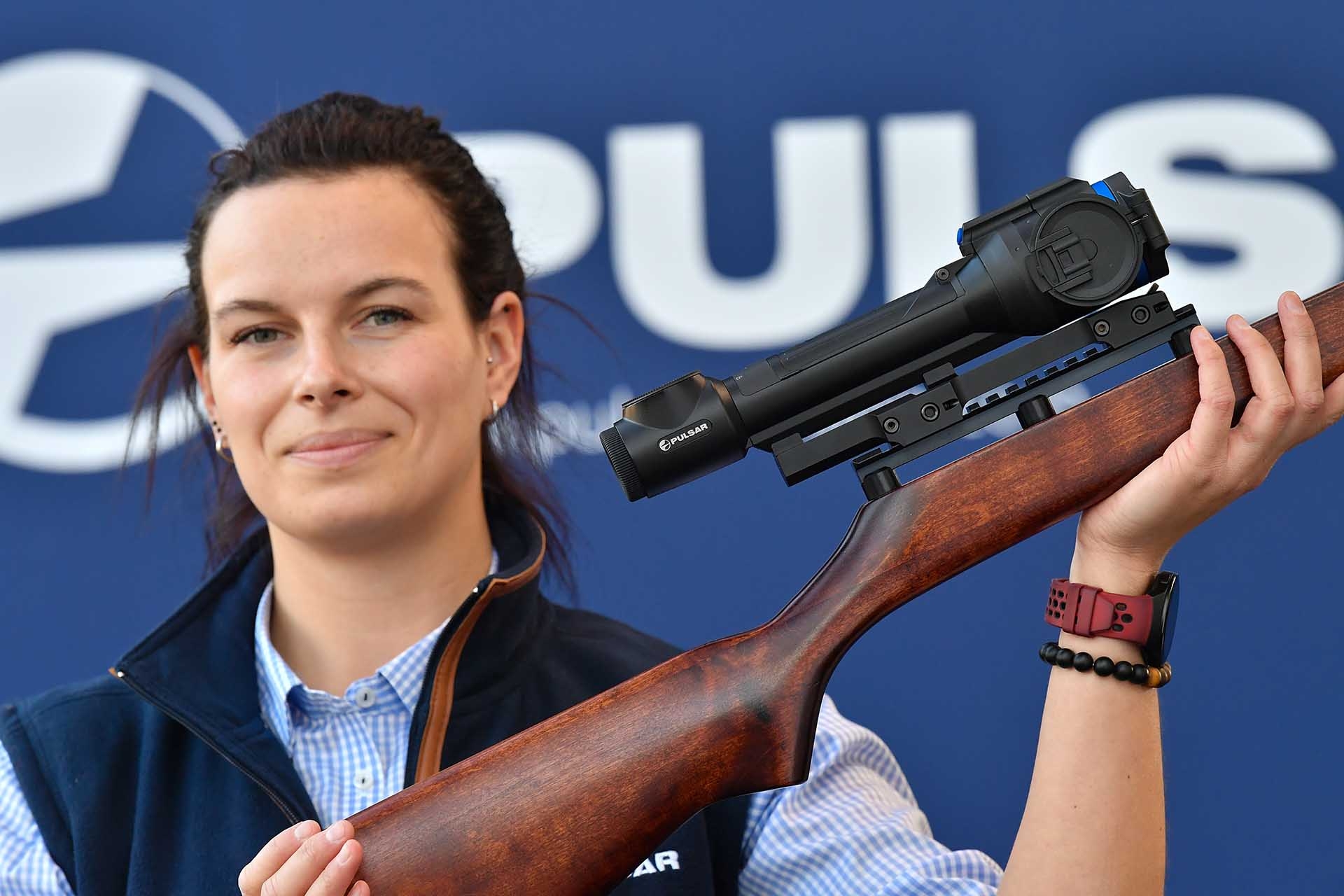Pulsar currently offers a complete line of compact thermal imaging monoculars, covering all market segments and each with a feature and performance set that is basically affordable by all experienced hunters; the Axion 2 line.

At the lower end, we find the budget priced XM30F model – that all4hunters reviewed here – with a resolution of 384x288 pixels.
In the middle of the segment, Pulsar places the Axion 2 XQ35, with the same resolution but larger objective lens, improved performance and overall better optics; and at top, the Axion 2 XG35, that adds even better optics (the wide-angle eyepiece) and a top-of-the-line premium 640x480 resolution sensor.
The feature set is completed by the possibility of an optional integrated laser range finder, available both in the Axion 2 XQ35 and XG35 models. All three models are based on the same structure, with some difference especially in the entry level XM30F model. However, we will concentrate on the middle and top models, as we received from Pulsar an Axion 2 XQ35 and an Axion 2 XG35 LRF to test.
Video: Pulsar Axion 2 XQ35 and XG35 LRF thermal monoculars
The structure, ergonomics and handling of the Axion 2 is excellent, as it always has been.
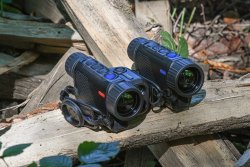
Pulsar embraces the Industrial Design concept that mainstream product market leaders have done for decades: do your homework, invest and develop strongly into a well-designed family feel and style, and gift this style to all products, making them immediately stand out and easily recognizable on the market – just like an Apple brand device is recognizable without having to look at the brand.
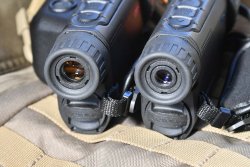
This goes much deeper than a simple appearance; just like a Nikon camera – or the previously mentioned iPhone IOS, the menu system and user interface is always the same, with incremental updates and improvements, making the user immediately "at home" with every new device that he may be purchasing, making the learning curve a moot point. It is also a great way to establish a following, and I can’t agree more to this concept.
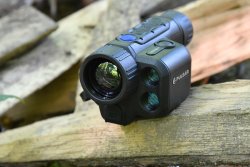
Lets start with the mainstream, prosumer device: the Axion 2 XQ35, a sleek, ultracompact, lightweight and rugged monocular, that in my opinion hits the sweet spot regarding the best bang for the buck, with reliable and proven sensor resolution (using a European made Lynred sensor with 17 µm pixel pitch), the same LWIR Germanium F35/1.0 fast objective lens as its bigger brother XG35, and all of the usual features Pulsar has come to make us take for granted, like video recording, wifi connectivity, great battery life etcetera.
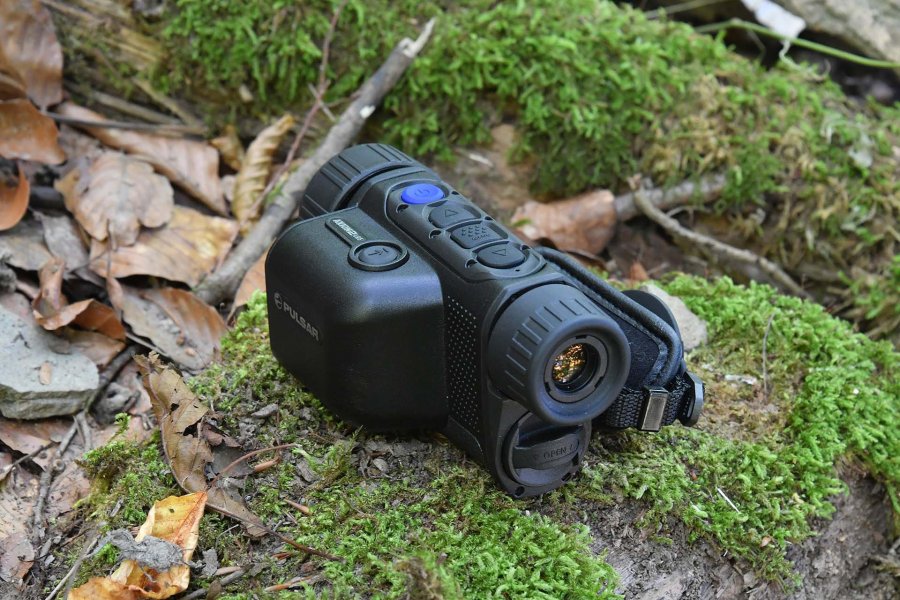
In a sense, we’re spoiled: the feature set of Pulsar’s night vision and thermal imaging product follow the same "family feeling" concept, they are a part of it being included in almost all of the Lithuanian manufacturer’s products but are a premium if we compare them to what the market offers in terms of competition.
I won’t list all the features once again; these are detailed in my previous reviews of Pulsar’s thermal imaging optics. What I will say is that the Axion 2 XQ35 is a mature product that has amazing functionality, and excellent pocketability, it’s slim enough that you can always take it with you and is always ready to show the invisible.
It’s ultra-tough, thanks to the magnesium housing, and waterproof too, both staples of a good hunting device.
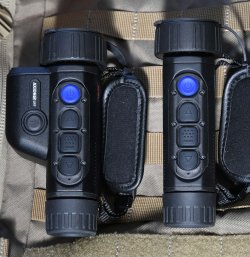
The resolution may seem low, 384x288 pixels, but in reality, it allows for excellent game identification and detail, and the thermal image processing engine, especially with the new firmware 2.0 update available for XQ and XM models, offers great dynamic range, and increased detail, sharpness and contrast.
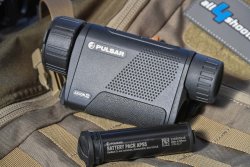
The top of the line Pulsar Axion 2 XG35 I received for this review is the model with integrated laser range finder: I do have to say that the LRF module adds a lot of bulk to the device, making it a bit unwieldy, almost doubling the basic unit’s thickness, but the tradeoff is that it adds excellent distance measuring capability, with a maximum range of 1000 m – plus, an internal sensor also displays the target’s inclination in respect to the observer, very important information to dial up the ballistic drop or dope on the riflescope reticle to take the shot with maximum accuracy in the mountains or steep hills.
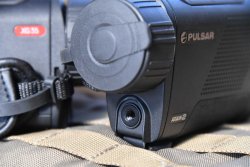
The sensor is again a Lynred FPA microbolometer, with 640x480 resolution and with a smaller pixel element, 12µm. NETD is <40 mK, the same as the XQ, for excellent performance in low contrast situations.
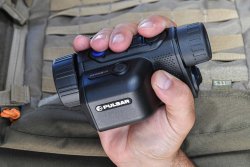
The magnification is different, 2.5x that can be digitally zoomed to 20x, from the 2x – 8x of the XQ, because of the "crop factor" of the sensor: it’s smaller and with higher native resolution. Digital zoom also goes all the way up to 20x, a bit much as the pixellation is very obvious. Detection range also is increased, 1750m versus 1300 in the XQ.
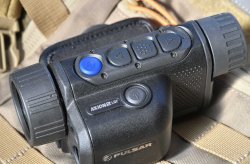
The displayed resolution is enough to distinguish features of animals and game, for improved selection of the hunting target. The eyepiece is also of improved quality, with a wider FOV and larger diameter, plus increased resolution of the AMOLED microdisplay inside the optics: 1024x768 vs 640x400, compared to the Axion 2 XQ. The image quality is excellent, while the visual experience can be tailored to the needs, environment, and weather conditions to offer the best performance thanks to digital enhancement filters and color palettes.
My opinion on the Axion 2 series of products is without any doubts positive: the best buy would be the Axion 2 XQ35, this monocular giving the best balance between affordability, compactness, performance and features, while the Axion 2 XG35 LRF is a no-compromise product that offers just the best available in this class and size of thermal imaging optics – plus 1 km laser rangefinding capability – at a premium price point.
Pulsar Axion 2 XQ35 and XG35 LRF specs
| Manufacturer: | Pulsar
NV | Pulsar
NV |
| Model: | Axion
2 LRF XG35 | Axion
2 XQ35 |
| Sensor (NETD <40 mK): | 640x480
pix. @ 12 µm | 384x288
pix. @ 17 µm |
| Objective Lens: | F35/1.0 | F35/1.0 |
| Magnification: | 2.5
– 20 (x8 zoom) | 2 -
8 (x4 zoom) |
| Field
of View | 21.9
m@100 m | 18.2
m@100 m |
| Detection Range: | 1750 m | 1300 m |
| Frame Rate: | 50 Hz | 50 Hz |
| Eye Relief: | 14 mm | 14 mm |
| Display: | AMOLED,
1024x768 | AMOLED
640x400 |
| Detection Range: | 1750
m | 1300
m |
| Laser
Rangefinder Range | 1000 m | - |
| Accuracy: | ± 1
m | - |
| Video
Recorder Resolution: | 1024x768 | 528x400 |
| Built-in Memory: | 16 GB | 16
GB |
| Wi-Fi: | IEEE
802.11 b/g/n/ac | IEEE
802.11 b/g/n/ac |
| Degree
of Protection: | IPХ7
(waterproof) | IPХ7
(waterproof) |
| Battery Type: | APS
5 Li-ion Battery Pack | APS
5 Li-ion Battery Pack |
| Operating Time: | 7 h | 11 h |
| Body Material: | Magnesium
alloy | Magnesium
Alloy |
| Dimensions: | 152x74x75
mm | 152x50x74
mm |
| Weight: | 350 g | 300 g |
For additional information please visit the Pulsar website.



